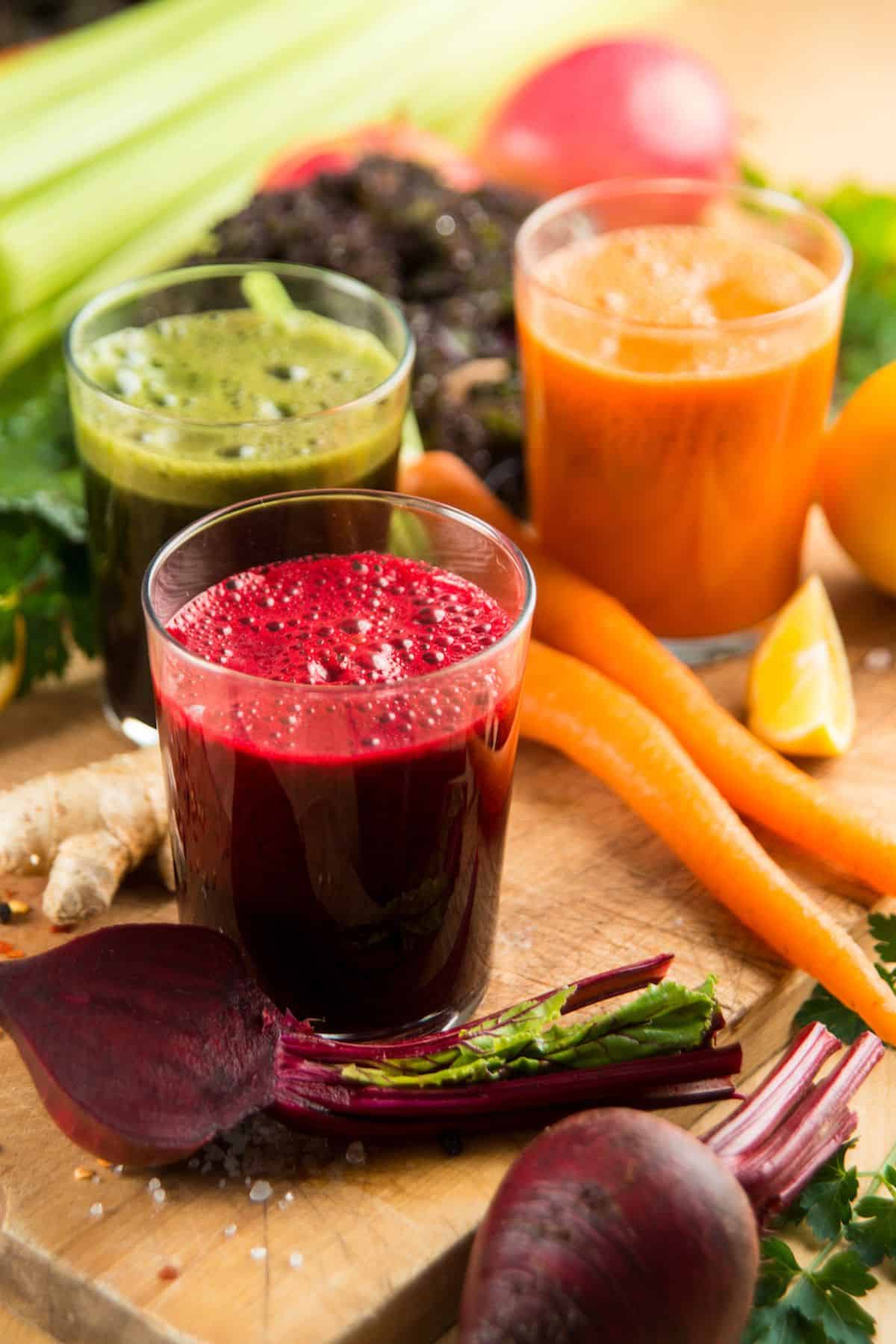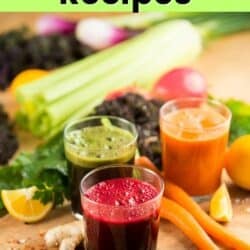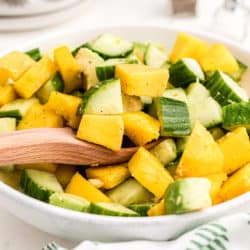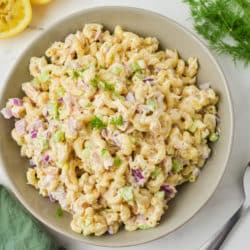10 Juice Cleanse Benefits (From a Nutritionist)
If you’re considering a juice cleanse for health or weight loss, then there are some risks and benefits you need to know. This article shares some of the most important juice cleanse benefits including easily absorbed nutrition and enhanced weight loss. Learn about the potential risks and benefits of doing a juice cleanse.

Juice Cleansing Overview
A juice cleanse is a program where you consume only juiced vegetables and fruits for a period of time, usually several days. The length of your juice cleanse and the guidelines vary depending on the person, and on the program you’re following.
Some programs advocate for a 2-day cleanse, while others promote a 5-day or 7-day cleanse. See my list of juice cleanse recipes.
However, you don’t need to follow a specific program or buy a product to have an effective. While it can take some time and effort, you can create your own juice cleanse plan and juice your own veggies and fruits in the comfort of your own home.
In this article, I’ll share both the potential risks and benefits of vegetable juicing, and I’ll also share some of my favorite recipes.
Remember: you don’t have to do a cleanse or “detox” to enjoy the benefits of fresh vegetable juice. See below for my suggestions on how to incorporate green drinks into your daily routine without having to make drastic changes to your diet or lifestyle.
Potential Benefits of Juice Cleanse
There are a lot of claims about juice fasts and whether or not it can be part of a healthy lifestyle or improve overall health.
There are some valid benefits that actually have science behind them, but be wary of claims that sound too good to be true or sound “sales-y.”
You’ll also want to make sure that you are at a good point in your health journey before embarking on any kind of cleanse, detox, or fasting protocol (see my related post on the risks of intermittent fasting for women).
Here are ten potential benefits of a juice cleanse.
1. Support the Immune System
When you consume only juice and avoid solid foods, you’re likely in a fasted state. Fasting has a host of benefits, but one of the most notable ones is immune system rejuvenation.
In a fasted state where you are only consuming vegetable juices and no whole foods, your body begins to deplete glycogen stores. The biochemical processes involved in using stored glycogen promote healing throughout the body. In addition, fasting could signal the body to rid itself of damaged cells and produce new ones.
In this way, doing a juice cleanse can help mimic the fasted state and, therefore, can help boost the immune system.
2. Promote Healthy Gut Microbiome
If you’ve paid attention to the wellness space over the past couple of years, you’ve likely heard how important it is to have a diverse microbiome and overall healthy gut and digestive tract.
One study showed that a three-day vegetable and fruit juice-based diet led to significant improvements in the gut microbiome, due to the fermentable fiber found in juices.
Read more about probiotic food sources and see my list of the best vegetables to juice.
You don’t necessarily have to do a juice cleanse to get the benefits of these fermentable juice fibers. Just adding in fresh vegetable juices (or more veggies in general) to your diet can help add diversity and strength to your gut microbiome.
3. Support Detoxification
A juice diet can support your detox pathways twofold: by fasting and by providing antioxidants and nutrients.
When you fast by consuming only juice and no solid food matter including whole fruits, you are allowing your digestive system to take a break. Your body can then focus its attention on removing stored toxins instead of metabolizing food.
Fruit and vegetable juices are also rich sources of antioxidants, which help fight free radical damage in your body.
In these ways, detox diet such as a juice fast may be a good idea for some people.
4. Get Easily-Absorbed Nutrients
Juicing eliminates most of the fiber from fruits and vegetables, which allows for quicker absorption of nutrients including antioxidants.
Many people also find that they can consume more fruits and veggies in juice or liquid form.
This study specifically showed the potential for fruit and vegetable juices to improve cardiovascular health due to the increase amount of antioxidants.
5. Easier Weight Loss
The potential for easy and fast weight loss is a common sales point for juice cleanses. A juice cleanse won’t necessarily make you drop a lot of weight in one week (not that you’d want to anyway!) but many report weight loss as a benefit of juice cleansing.
The weight loss from juicing likely comes from a restriction in calories and loss of water. Or, weight loss during a juice cleanse may from the loss of “inflammation weight.”
This quick weight loss is not necessarily a sustainable or necessarily healthy way to lose weight. Depending on your personal viewpoint, weight loss on a juice cleanse is either a benefit or a risk.
That said, even drinking more water has been shown to help with weight loss. So, even if you don’t do a full juice cleanse, you may want to consider hydrating more.
See my recipe for Cucumber Ginger Lemon Water which is sugar-free and calorie-free.
6. Improved Energy
There is no scientific research that shows that a juice cleanse will increase energy, but some people report feeling more energetic while cleansing.
This could be due to the lack of eating unhealthy foods that you may have been consuming before the cleanse or for a variety of other reasons. It’s important to continue listening to your body even while doing a juice cleanse.
If you feel unwell or your energy levels are not good, it’s best to consult a healthcare provider to determine if you need to stop the cleanse or if you require other medical intervention.
7. Improved Skin Clarity
Another anecdotal benefit of a juice cleanse (or even just adding more vegetables to your diet) may be the improved appearance of your skin.
This could be due to a variety of reasons including consuming more antioxidants from fresh fruits and vegetables in your fresh juice.
See my related list of the best green vegetables to consume.
8. Decreased Inflammation
Fruits and vegetables are known for their anti-inflammatory properties, due to their high antioxidant content.
By consuming a diet high in fruits and vegetables, some people believe (and experience) that a juice cleanse can help reduce inflammation in the body.
You can likely get the anti-inflammatory benefits of fruits and vegetables from both eating them whole and juicing them.
See my full list of recipes when juicing for inflammation.
9. Reset of Diet
Juice cleanses are sometimes used as a way to break cycles of unhealthy eating and reset one’s diet.
After a cleanse, it may be easier for some people to make healthier food choices.
On the other hand, some people may experience a worse relationship with food after doing a cleanse. In this case, it would be important to consult a registered dietitian or therapist trained in eating disorders who can help you maintain a more positive relationship with food.
10. Better Mental Clarity
Some people report experiencing increased focus and clarity during a juice cleanse.
This is thought to be due to the elimination of processed foods and added sugars, which can cause fluctuations in blood sugar and contribute to brain fog.
That said, some juices may result in blood sugar fluctuations in some people. So, it’s best to be cautious when doing a juice cleanse as results can vary greatly from person to person.
See my full article on the health benefits of green juice.
Potential Risks of Juice Cleanse
Just as there are plenty of claims about the benefits of a juice cleanse, there are plenty of potential risks to consider as well.
Filtering out the extremes of both sides is important when making your personal decision about juice cleansing.
Here’s six real potential risks of a juice cleanse.
1. Blood Sugar Instability
Juicing fruits and vegetables strips them of most of their fiber, leaving mostly nutrients and sugar behind.
Some may do fine with the natural sugars found in fruit and vegetable juices, but it’s important to be mindful when consuming juices. You’re consuming sugar and carbohydrates in the absence of adequate fiber, protein, or fat.
These natural sugars are quickly absorbed into your bloodstream and can cause a dramatic increase and drop in blood sugar levels for some people.
One way to get around this it to consider adding protein to your juices. You can blend in any of the protein powders on my list of the best paleo protein powders to help add a more balanced profile to your juices.
You’ll get the benefits of the antioxidants in the juice, but you’ll also get protein to help slow down the absorption of the natural sugars.
2. Improper Fasting
Fasting is not for everyone.
If you’re on a juice cleanse for the purpose of fasting, be mindful of your body’s unique stress response and reactions to energy restriction. Moreover, fasting with juice may not be the best way for some people to fast.
If you experience blood sugar swings and low mood, consider other methods of fasting that don’t involve juice. Or, you may not want to fast at all when doing a juice cleanse.
Instead, drink your juices with a balanced meal.
You don’t have to go 100% juice and no food. You can likely still get health benefits from eating a clean diet and adding in fresh vegetable juices (see my healthy grocery list if you need more ideas on what to eat).
3. Foodborne Illness Risk
Bacteria and pathogens are a risk when consuming unpasteurized raw juice.
Always follow proper food safety tips when preparing and consuming unpasteurized juice to help reduce your risk, and be extra cautious if you have an already compromised immune system.
If you are immunocompromised, you may need to skip unpasteurized juices and only drink pasteurized juices instead. Ask your doctor if you have questions about your personal situation including pregnancy.
4. Lack of Fiber
Because juicing fruits and veggies rids them of most of their fiber content, you may not be getting an adequate amount of fiber to support your long-term health while on a juice cleanse.
There is the potential for constipation or other digestive issues when you don’t consume enough fiber on a daily basis.
One way to get around this is to add smoothies into your cleanse where you are getting all the fiber in addition to the antioxidants.
Green smoothies like my Broccoli Smoothie, Collard Green Smoothie, Anti-Cancer Breakfast Smoothie, or Detox Smoothie are all good options.
5. Difficulty Getting Calories
Liquid foods like juices and smoothies make it difficult to gauge your caloric intake.
A large volume of food can be condensed into sixteen ounces of liquid, or you could accidentally underestimate the volume of food in your juice. In addition, liquid calories may not satiate or satisfy you like solid food.
The act of chewing and slowly eating a meal is necessary for proper digestion and hunger signals. If you severely restrict calories for too long, you will slow your metabolism and then potentially gain weight when you begin eating a proper amount again.
If you find yourself losing or gaining weight too quickly when doing a juice cleanse, then you should likely consider ending the cleanse and going back to eating a more balanced diet with whole foods.
6. Potential for Oxalate Poisoning
Certain fruits and veggies like spinach and berries are naturally higher in oxalates, which are crystalline molecules that can cause issues like kidney stones when overaccumulated.
You’d need to consume a large amount of high-oxalate foods very often to see an issue, unless you have a genetic predisposition interfering with oxalate metabolism. Please be sure to consult with your healthcare provider for more information.
One way to get around this is to avoid high oxalate foods like spinach and beets when juicing.
7. Other Risks Including Digestive Distress
There may be other risks to your health in doing a juice cleanse. That’s why it’s important to consult with a licensed healthcare provider before doing any type of drastic diet or cleanse.
Some additional risks include: an increase in negative feelings about food or eating, an unhealthy focus on weight or appearance, increased risk of digestive distress, or others.
Remember: a juice cleanse is considered a drastic approach. A more conservative way to get both the benefits of juice cleansing without all of the risks is to add 1-2 vegetable juices to your regular diet that is made up of clean, whole foods.
Who Should Not Do a Cleanse
Pregnant women, children, elderly people, and those with compromised immune systems are not good candidates for doing a juice cleanse.
The FDA recommends against juicing for children, elderly people, pregnant women, and those with compromised immune systems due to the risk of foodborne illness from unpasteurized juice.
Additionally, it’s good to be cautious of a juice cleanse fast if you fall into one of the following populations:
- You’re a woman with hormonal imbalances or you’re trying to conceive. While fasting can have great benefits for some women, if you’re dealing with hormonal issues or trying to conceive you may want to avoid it. Fasting can be stressful for the body, and as women’s hormones are more sensitive to stress, fasting can exacerbate hormonal imbalances and even make conception more difficult. See my related articles on how to reduce estrogen dominance or the best fertility diet recipes.
- You’re an athlete or very active person. Fasting can impair recovery and performance due to underfueling your body. If you want to do a juice cleanse, take those days off from physical activity.
- You have blood sugar regulation issues. While on a juice cleanse, you’re consuming pure sugar and carbohydrates without fat, fiber, or protein to slow its absorption into your bloodstream. If you are sensitive to blood sugar spikes and drops, it’s best to avoid a juice cleanse.
- You have SIBO or other gut dysbiosis issues. The fermentable fiber that is left over from juicing can exacerbate gut dysbiosis.
- You’re very stressed. Fasting and any caloric restriction will only exacerbate stress. Wait until a calmer period in your life to embark on a juice cleanse.
Conclusions
As with most health trends, there is some truth to the claims, but it’s not the whole story. A juice cleanse has a wide array of benefits for many people, including immune system support and better nutrient absorption. There are also a variety of potential risks, such as blood sugar instability and foodborne illness. You must weigh the potential benefits with the potential risks and determine if a juice cleanse is right for you.
Don’t forget to join my newsletter list to get exclusive clean eating recipes and tips. The newsletter is 100% free with no spam; unsubscribe anytime.
About the Author: Carrie Forrest has a master’s degree in public health with a specialty in nutrition and is a certified holistic nutritionist. She is a top wellness and food blogger with over 5 million annual visitors to her site. Carrie has an incredible story of recovery from chronic illness and is passionate about helping other women transform their health. Send her a message through her contact form.
Note: this post is for informational purposes only and is not intended as medical advice. Please consult your healthcare provider for recommendations related to your individual situation.

















Juicing has helped keep me healthy for 10+ years. I love it!
This looks delicious, I’m going to try these healthy tips. Keep sharing more like this. Thank you
I wanted to do a juice cleanse, but I recently read an article that mentioned that juice cleanse like celery juice is actually not good for you. What are your thoughts?
It all depends on how you feel and what you are trying to achieve. Juice cleanses in general are not a great idea, unless you are being closely monitored by a healthcare provider.